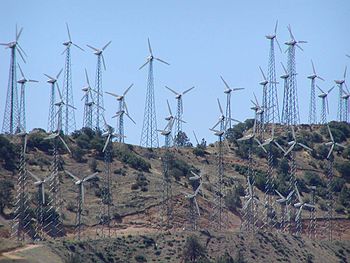
Tehachapi wind farm
California Power Outages: Extreme Weather, Extreme Energy Shortages, or Extreme Litigation?
There is no increase in summer temps, but the renewable energy mandate is being ramped up
By Katy Grimes, October 1, 2019 12:18 pm
San Francisco based Pacific Gas & Electric recently warned customers on that it could turn off power in six Northern California counties as a public safety precaution to help reduce the risk of wildfire. The shutdown could have impacted as many as 124,000 energy customers in Butte, El Dorado, Nevada, Placer, Sutter, and Yuba counties.
“Weather conditions can change quickly,” PG&E said. “Out of an abundance of caution, PG&E began providing notice to customers in advance of this safety event through automated phone calls, texts, social media and emails.”
PG&E also recently announced it will pay $11 billion to settle with insurers in the 2017 Northern California wildfires and 2018 Camp Fire, largely paid for by ratepayers.
California Globe recently reported:
“The wildfire legislation that Governor Gavin Newsom just signed into law is being challenged in court for allegedly violating both the United States Constitution and the California Constitution. The law established a $21 billion fund to cover damages from wildfires caused by utility companies faulty equipment. $10.5 billion for the fund comes from charges on customer’s utility bill. The other $10.5 billion is coming from the utility companies.”
Southern California Edison and San Diego Gas & Electric have also notified millions of California customers warning that power could be shut off at the discretion of the utilities.
Sacramento Municipal Utility District recently implemented a tiered rate program, increasing the electricity costs 40 percent between 5:00pm and 8:00pm, to discourage ratepayers from using electricity during peak hours. “The goal of Time-of-Day pricing is to reduce how much electricity we use during peak hours,” SMUD said. This rate change takes place just in time for families to get home from work, feed everyone, do a couple loads of laundry, bathe the kiddies, maybe vacuum a room or two, and watch a little Netflix.
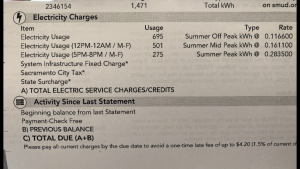
These new summer “peak” rates appear to be about 40% – 200% higher, looking at the bill.
Is the weather more extreme, is there a shortage of available energy, or is litigation the threat?
In June, PG&E turned off power in Napa, during a heat wave, only restoring power later in the day. More power outages came at 9 p.m. to customers in Butte County, Yuba County, and Sierra Foothills, California Globe reported.
There have been talks about power outages for over a decade. The California Public Utilities Commission has rejected previous attempts, but following the deadly 2018 fires, allowed shutoffs under the guise of protecting public safety.
Yet this comes as California has taken nuclear power plants offline while increasing renewable4s mandates for wind and solar. Nuclear power is clean and reliable; wind and solar power, while clean, are unreliable and significantly more expensive.
California utilities and energy providers have been warning about power outages this summer anyway, and not in terms of security and safety, but because of an anticipated lack of available power. The CPUC outage authorization provides the utilities cover.
‘The Reason Renewables Can’t Power Modern Civilization Is Because They Were Never Meant To’
“In this age of political hysteria, we must all educate ourselves on the facts – the actual science,” meteorologist and climate scientist Joe Bastardi says. “Unfortunately, there seems to be a total lack of awareness about important issues that scientists like myself – who aren’t paid by research grants – are concerned about.”
“Instead, climate science is being used as a political weapon, and the voices of scientists like me are being ignored or even vilified. I was under the impression that in the United States, all voices and arguments should be heard. Climate science is not settled science. If it was, why would there be a continuous flow of money to research it?”
“Had California and Germany invested $680 billion into new nuclear power plants instead of renewables like solar and wind farms, the two would already be generating 100% or more of their electricity from clean (low-emissions) energy sources,” according to a new analysis by Environmental Progress.
Forbes reported, “California easily leads the nation with nearly 470 power outages a year, compared to 160 for second place Texas, which is really amazing because Texas produces 125% MORE electricity! (here).”
“California’s reliability problems will be multiplied as more wind and solar enter the power mix, intermittent resources located in remote areas that cannot be so easily transported to cities via the grid.”
What Happened?
In 2011, California passed the Renewables Portfolio Standard setting the mandate at 33 percent renewable energy by 2020. When it became clear that California was nearly there, in 2015, the Legislature moved the bar again and passed SB 350 the “Clean Energy and Pollution Reduction Act of 2015.” SB 350 by Sen. President pro Tem Kevin de Leon (D-Los Angeles), requires the state to procure 50 percent of electricity from renewable energy and double energy efficiency savings by 2030. In 2018, Gov. Jerry Brown signed Senate Bill 100, setting a 100 percent clean electricity goal for the state, and issued an executive order establishing a new target to achieve carbon neutrality – both by 2045. These mandates leave utility companies no wiggle room.
Using more renewable energy causes the entire electricity grid to be unreliable because sun and wind are intermittent and inconsistent.
Only one year after adopting SB 350, the announcement in 2016 from PG&E that it was closing Diablo Canyon Nuclear Power Plant ironically came on the same day there were rolling blackouts in Los Angeles amidst sweltering temperatures. PG&E said they planned to replace the loss of the cheap, clean nuclear energy with renewable energy.
This decision was made despite that in 2015, all wind energy in California only produced 12 billion kWhs, scientist James Conca explained in 2016. “The two Diablo Canyon nuclear reactors produce 17 billion kWhs every year, and will for the next 20 years if not prematurely closed for political reasons.”
The closure will drive direct increases in natural gas use, which will be further increased due to the need for backup and balancing the volatile wind and solar output. California cannot rely on renewable energy without natural gas.
In 2013, Southern California Edison closed the San Onofre Nuclear power plant, which Conca said was not necessary. “Shutting down a nuclear plant that is operating costs more than to keep it running,” Conca said. “San Onofre could have continued to operate at 90 percent capacity for the next two decades. Nothing is perfect, we just need to deal with it.”
California drivers have been encouraged to switch to electric cars, but the state’s leaders don’t ever acknowledge where the power comes from to charge the batteries—Coal. In fact, the bulk of our energy comes from coal as electricity is not naturally occurring in nature.
As California ramps up its renewable energy mandates, the availability and reliability is becoming an issue – just as it did in Germany.
The answer to “Is the weather more extreme?” is “No.”
“Is there a shortage of available energy?” The answer is “Yes.”
“Is litigation the threat?” Yes, it is a threat. The energy companies are indeed concerned about future litigation should wildfires break out. There is now precedence for the state to put 100 percent of the blame on PG&E, SCE, and SDG&E. And then the energy companies turn around and pass the cost increases on to ratepayers, with the approval of the Public Utilities Commission.
Southern California Edison just filed its new General Rate Case for 2021, and are asking for another 20 percent rate increase, on top of the nearly 20 percent increase last year.
Southern California Edison explained: “Capital expenditures have indeed increased” but contends this occurred for valid reasons: ‘[o]ur need to keep our aging system reliable and resilient for our customers drives infrastructure replacement, which in turn drives prudent but increased capital spending.’ Mr. Payne also defends SCE’s request for separate and additional funding to modernize its grid because it will support additional safety and reliability now, while also establishing a foundation for distributed energy resources (DER) integration as future needs emerge.”
Edison also recently hired long-time California Public Utilities Commissioner Carla Peterman as their Vice President of Regulatory Affairs. The SCE announcement of Peterman’s hiring says, “She was appointed earlier this year by Gov. Newsom to chair the Commission on Catastrophic Wildfire Cost and Recovery, which played a critical role in developing recommendations that led to passage of legislation that holds utilities accountable for reducing wildfire risks from their equipment and encourages a financially stable electric industry.”
Joe Bastardi warned: “The migration towards cleaner, alternative energy needs to be done in a methodical, sustainable and intelligent way, otherwise, the consequences could be far worse than anyone can imagine.”
2018 Edison Rate Case Approved
- Newsom’s Betrayal: How to Bury California’s High Speed Train Scandal for 2028 Election - February 9, 2026
- Californians for Equal Rights Foundation Sues San Francisco to Stop its Reparations Plan - February 7, 2026
- Globe Interview: Gubernatorial Candidate Jon Slavet - February 6, 2026


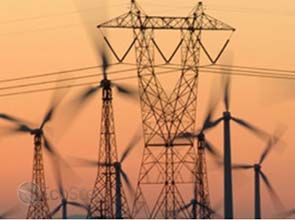
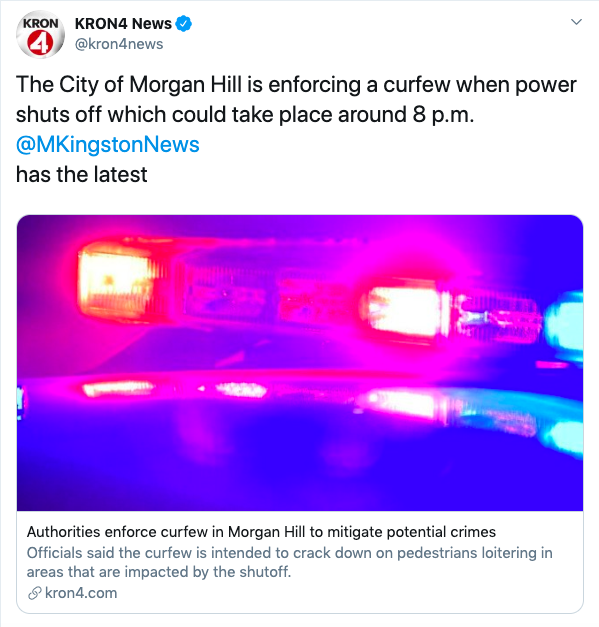
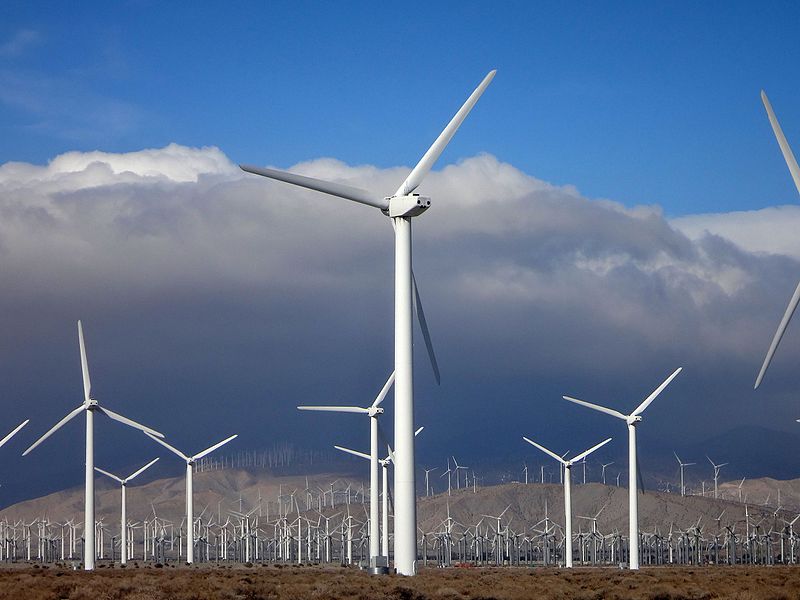
I trust Me. Bastardi a whole lot more than the hysteria peddlers like AOC who are using fear to create a power & wealth grab for themselves and their Democrat party.
And emotion-driven useful idiots allow themselves to be manipulated into submission, while our overall economic system is upended, allowing for political power to be concentrated by the fear-mongerers.
Shall we just call it “Extreme Stupidity?”. You know it’s stupid AND wrong if the Government is involved. PG+E is pretty close to being the Government, if they’re taking orders from the famous climate scientist Governor Hair Product.